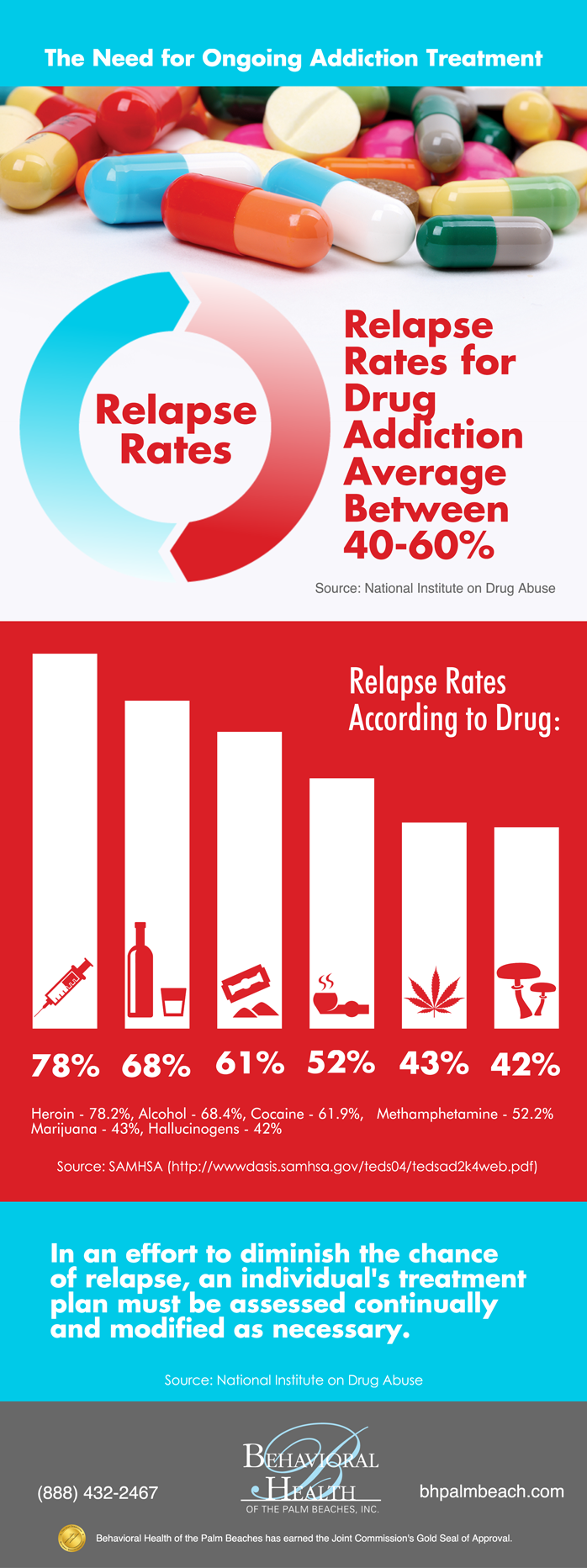Why Aftercare In Drug Rehab Is Important For Long-Lasting Recuperation. Learn How Support Systems Can Aid You Remain Sober And Build A Fulfilling Life
Why Aftercare In Drug Rehab Is Important For Long-Lasting Recuperation. Learn How Support Systems Can Aid You Remain Sober And Build A Fulfilling Life
Blog Article
Produced By-Ashby McKenzie
You can not do it alone. Recovery from drug addiction requires a strong support group.
The value of aftercare in drug rehab can not be overstated. In this article, we will discover the function of counseling, the benefits of treatment, and the structure supplied by peer support groups in maintaining soberness.
So, order a mug of coffee, unwind, and allow us assist you via the crucial actions of post-rehabilitation support.
The Function of Therapy in Aftercare
If you wish to keep your sobriety after leaving rehabilitation, it's crucial that you proceed taking part in therapy sessions as part of your aftercare plan.
Therapy plays an essential role in your recovery trip by giving continuous assistance, support, and a risk-free space to reveal your feelings and worries.
Through therapy, you can attend to any type of underlying problems that might have added to your addiction, establish dealing approaches, and learn much healthier ways to handle anxiety and desires.
Muse How To Help Someone Recover From Drug Addiction 91201 permits you to overcome any kind of unresolved emotions and develop a better understanding of yourself and your triggers.
The Advantages of Treatment in Keeping Sobriety
To maintain your soberness, therapy can supply countless benefits.
- Therapy supplies a safe space for you to check out and resolve the underlying problems that might have contributed to your dependency.
- It permits you to overcome your feelings and create much healthier means of handling tension and causes.
- With therapy, you can obtain a much better understanding of yourself and your patterns of behavior, which can aid you make positive adjustments in your life.
- Additionally, therapy gives you with a support system of professionals that are trained to direct and aid you on your trip to recuperation.
- They can use useful insights, tools, and techniques to assist you browse the challenges that might occur.
- In treatment, you can find out to create healthy and balanced coping abilities, develop strength, and enhance your total well-being.
Peer Support Groups: A Structure for Lasting Recovery
You can discover long lasting recovery by actively participating in peer support groups and connecting with others who share similar experiences and goals.
https://blogfreely.net/britney3elisha/find-out-how-therapy-thinks-an-important-part-in-drug-recovery provide a risk-free and non-judgmental space where people in healing can collaborate to share their struggles, successes, and insights. By proactively joining these groups, you can receive the assistance and inspiration you require to remain on the course of recuperation.
Getting in touch with others who've undergone similar experiences can be extremely empowering, as it helps you understand that you aren't alone in your journey. It likewise allows you to pick up from others who've successfully gotten rid of similar difficulties. With each other, you can commemorate milestones, hold each other responsible, and offer guidance and recommendations.
With these links, you can construct a strong support group that will assist you browse the ups and downs of healing and ultimately find long-term healing and makeover.
Verdict
You've discovered the essential function of aftercare in drug rehab. Counseling, therapy, and peer support groups contribute to lasting recuperation. Below's https://www.postnewsgroup.com/wnba-star-britney-griner-pleads-guilty-to-drug-possession-in-russian-court/ to comprehend the magnitude of the issue: research studies show that individuals who obtain aftercare treatment are 50% most likely to maintain sobriety compared to those that do not.
So, envision the transformative power of these support systems in assisting individuals reclaim their lives and construct a brighter, drug-free future.
